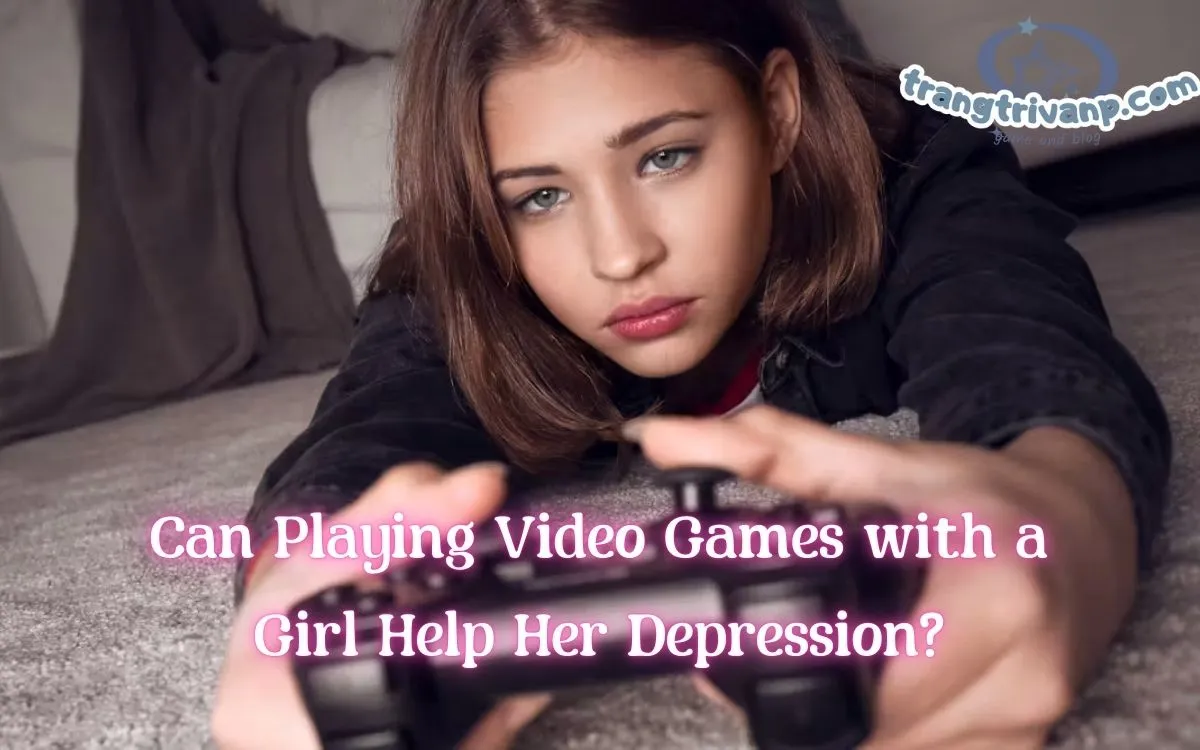Kids Guitar Music Time
Published on December 9, 2024

Mental health has become a significant focus in recent years, and with the rise of video games as a popular pastime, many wonder if gaming can have therapeutic benefits. Among the key questions is whether playing video games with a girl struggling with depression can make a positive impact.
At trangtrivanp.com, we believe in exploring creative solutions to improve mental well-being. In this article, we’ll examine how video games can serve as a tool for connection, distraction, and even healing, specifically for girls dealing with depression.
Video games have often been associated with fun and entertainment, but they also play a more profound role in mental health:
Stress Relief: Immersive gaming can provide an escape from daily stressors.
Improved Mood: Accomplishing in-game goals boosts feelings of competence and achievement.
Social Interaction: Multiplayer games allow players to connect with others, fostering a sense of community.
For girls struggling with depression, these benefits can be particularly impactful when shared with someone they trust.
Depression often brings feelings of sadness, anxiety, and overwhelm. Video games offer a safe space to:
Take a break from troubling thoughts.
Engage in a virtual world that feels more manageable than real life.
Experience moments of joy and accomplishment.
Games with calming environments, such as Stardew Valley or Journey, are especially helpful for fostering relaxation.
Many girls with depression feel isolated, which can exacerbate their symptoms. Playing video games together creates:
Opportunities for bonding: Cooperative games like Minecraft or It Takes Two encourage teamwork and communication.
A sense of belonging: Online multiplayer games allow players to join communities of like-minded individuals.
Shared experiences: Celebrating in-game victories together strengthens relationships.
At trangtrivanp.com, we encourage exploring multiplayer games to bridge communication gaps and build supportive networks.
Depression often robs individuals of motivation and self-esteem. Video games provide:
Immediate feedback: Positive reinforcement through rewards, progress, and leveling up.
Tangible goals: Completing quests or challenges boosts confidence.
Resilience: Overcoming in-game setbacks encourages perseverance in real life.
Games like The Legend of Zelda or Animal Crossing are excellent for cultivating a sense of accomplishment.
Depression can affect concentration and decision-making. Certain video games enhance:
Problem-solving abilities: Puzzles and strategy games challenge the brain.
Focus and attention: Fast-paced games like Overwatch require quick reactions.
Memory: Story-driven games improve recall and engagement.
This cognitive stimulation can be a fun and productive way to combat the mental fog often associated with depression.

Can Playing Video Games with a Girl Help Her Depression?
Not all video games are suitable for someone struggling with depression. Here’s what to consider:
Calming Atmosphere: Games with soothing visuals and music, such as Flower, promote relaxation.
Positive Themes: Look for uplifting narratives rather than violent or overly competitive content.
Collaborative Play: Choose games that encourage teamwork and socialization.
Customizable Difficulty: Games with adjustable settings ensure they remain enjoyable, not frustrating.
By exploring these options together, you can ensure the gaming experience is both supportive and enjoyable.
If you’re planning to introduce video games as a tool to help someone with depression, keep the following in mind:
The goal is to create a positive shared experience:
Play games that both of you enjoy.
Use gaming sessions as a time to listen and connect.
Avoid putting pressure on performance or winning.
Keep the sessions stress-free:
Play at a relaxed pace that suits her energy levels.
Allow breaks when needed.
Avoid overly intense or time-consuming games.
Acknowledging achievements, no matter how small, can boost self-esteem:
Celebrate milestones, like completing a quest.
Encourage her efforts, even if she struggles.
Share the joy of progress, reinforcing positivity.
Depression can make even enjoyable activities feel overwhelming:
Be mindful of her mood and energy.
Avoid pushing her to play if she’s not interested.
Offer support without being overbearing.
At trangtrivanp.com, we emphasize the importance of compassion and patience in supporting someone with depression.
Research into the relationship between gaming and mental health offers encouraging findings:
Improved Mood: A study by the University of Oxford found that playing games can lead to greater well-being.
Social Benefits: Multiplayer gaming helps reduce loneliness and fosters friendships.
Cognitive Gains: Games requiring strategic thinking enhance cognitive skills, which can combat some depressive symptoms.
While video games are not a cure for depression, they can serve as a valuable supplement to therapy or other treatments.
While gaming can have benefits, it’s essential to approach it mindfully:
Excessive Gaming: Spending too much time gaming can lead to isolation or neglecting responsibilities.
Competitive Stress: High-stakes games might increase anxiety or frustration.
Content Concerns: Violent or dark themes can sometimes worsen depressive feelings.
To ensure a balanced approach, set reasonable limits and prioritize well-rounded activities.
While gaming can be therapeutic, combining it with other activities can enhance its benefits:
Outdoor Walks: Fresh air and sunlight improve mood.
Art and Craft: Creative outlets like painting or knitting encourage self-expression.
Music: Listening to or playing calming music reduces stress.
Exercise: Physical activity releases endorphins, naturally lifting spirits.
These activities can complement the gaming experience, creating a holistic approach to managing depression.
Playing video games with a girl who is dealing with depression can offer surprising benefits, from fostering connection to boosting self-esteem. The key lies in choosing the right games and maintaining a supportive, understanding approach.
At trangtrivanp.com, we believe in the power of creative solutions to improve mental health. Whether through shared gaming experiences or other supportive activities, small steps can make a big difference in someone’s journey toward healing.
If you or someone you know is struggling with depression, remember that professional help is always the best course of action. Video games can be a helpful tool, but they are most effective when used alongside proper treatment and care.